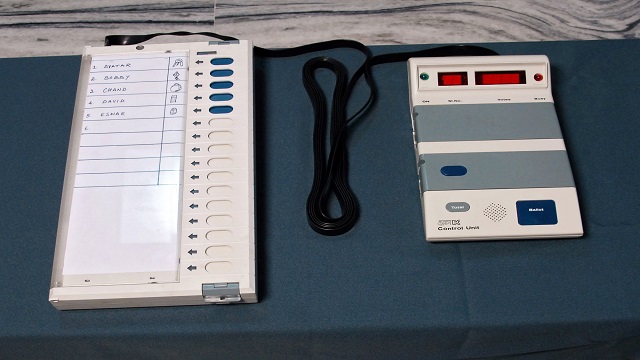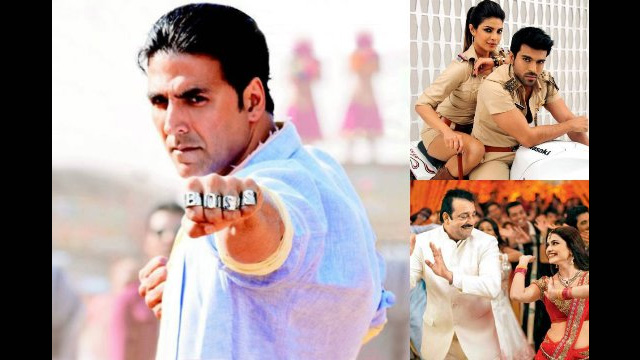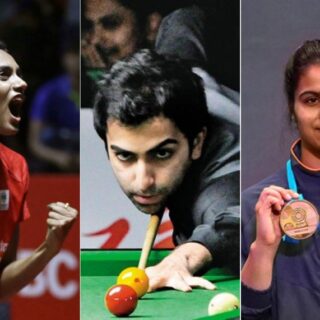The SC judgement has merely incorporated Right to Reject in EVMs making it a more secret process. But will it be able to give voice to the majority voters?
As much Congress is hell bent on criminalising politics, the Supreme Court of India has been consistent in its effort to cleanse the same. In a landmark judgement today, the apex court has given the Indian voters a ‘right to reject’ or negative voting in elections.
A bench headed by Chief Justice P Sathasivam said that negative voting would foster purity and vibrancy of elections and ensure wide participation as people who are not satisfied with the candidates in the fray would also turn up to express their opinion rejecting contestants.
The court said that democracy was all about choice. To make it more vibrant, it noted, people must have a choice to ‘abstain’ just as their representatives in the Parliament. It also said that right to reject was a part of the fundamental right to free speech and expression. The bench also noted that the concept of negative voting is prevalent in 13 countries.
Directing the Election Commission of India to include ‘NOTA’ or none of the above, the court said this will force political parties project good candidates with clean image in the elections.
There is no deadline given yet as to when the process should start, but the option is likely to feature in the EVMs in the upcoming assembly elections in November this year. With that, voters of Delhi, Rajasthan, Chhatisgarh, Madhya Pradesh and Mizoram will be first to exercise their right.
It is important to know that right to reject is not a new thing. Under the existing provisions of Section 49(O) of the Representation of People Act, a voter who after coming to a polling booth did not want to cast his vote, had to inform the presiding officer of his intention not to vote, who in turn would make an entry in the relevant rule book after taking the signature of the said elector. The EC had told SC about the option in the year 2009.
The provision was not exercised by the people because of wide unawareness and openness of the process. The judgement will allow people to exercise this right with the secrecy of their action intact.
The court passed the order on a PIL filed by an NGO, People’s Union for Civil Liberties (PUCL) which had submitted that voters be given the right to negative voting. According to the PUCL, Section 49(O) was violative of the constitutional provisions guaranteed under Article 19(1)(a) (Freedom of Speech and Expression) and Article 21 (Right to Liberty) and violated the concept of secret ballot.
While the judgement is being welcomed by the voters, it received a mixed reception in the political arena.
Already have lost face in the public due to its recent derogatory actions towards democracy, Congress is worried with the judgement. It has opposed the judgement saying that elections are meant to elect and not to reject. Left too has supported Congress in opposing the SC judgement.
The opposition BJP, who has always been in favour of electoral reforms, has welcomed the judgement. Although its leaders have spoken words of caution in the media saying that they are yet to receive a copy of judgement after which they will issue a detailed statement. But it supports the idea nonetheless as it considers the voting process a major cleansing process in democracy. Also, party’s prime ministerial candidate Narendra Modi had voiced his support for negative voting in June 2013 itself.
The Aam Aadmi Party has welcomed the provision with demands of further action on the judgement. It has said that fresh elections should be called if majority of the voters reject the candidates in the fray. Since its time of inception process, AAP had been pitching for right to reject and right to recall with activist Anna Hazare.
The judgement is a part of the series of judgements passed by it on election process. Its last judgement had prevented convicted lawmakers from standing in elections again. This was challenged by the government by clearing an ordinance to negate the same.
The main opposition BJP and UPA’s own people are against the ordinance which has become a matter of public shame for the government. The haste with which the ordinance was prepared by the law ministry and cleared by the cabinet was questioned by the critics.
The ordinance now lies on President Pranab Mukherjee’s table who, till the latest news, had summoned the UPA in a mood to reject the ordinance.
Meanwhile, AAP’s Arvind Kejriwal has challenged the government to pass an ordinance negating this judgement too.
The judgement not only strengthens the position of the apex court in the public eye, it also diminishes already troubled Congress’ image. It is a matter to see how this landmark judgement will change the due course of elections in India. But it surely will force Congress to change its spot.
While this becomes a huge moral victory for the people, it will be interesting to see how many people actually exercise it.
The provision has got certain limitations in practice. In case 90% people choose to reject the candidates standing in the election, the remaining 10% votes will be decisive. This will not be an actual representation of people. Although in current election process too, candidates win elections by securing nominal votes.
Perhaps the next best thing will be to amend the election process putting a provision for fresh election in case the majority rejects the candidates. Else, the judgement will be a mere addition to the problem.





